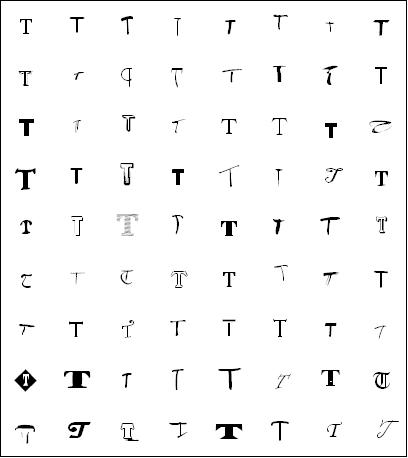If you have done much studying about IRAs and 401k plans, you probably know that there  are several exceptions in the Internal Revenue Code that allow an early withdrawal from your IRA or 401k plan without the 10% penalty being imposed. The section of the IRC that deals with quite a few of these exceptions is called Section 72t (referred to as 72t for short), and there are several subsections in this piece of the Code. Each subsection, listed below, has specific circumstances that must be met in order to provide exception to the 10% penalty. Clicking on the link for each subsection will provide you with additional details about that exception.
are several exceptions in the Internal Revenue Code that allow an early withdrawal from your IRA or 401k plan without the 10% penalty being imposed. The section of the IRC that deals with quite a few of these exceptions is called Section 72t (referred to as 72t for short), and there are several subsections in this piece of the Code. Each subsection, listed below, has specific circumstances that must be met in order to provide exception to the 10% penalty. Clicking on the link for each subsection will provide you with additional details about that exception.
§72(t)(2)(A)(i) – age 59½ – this is the standard age allowing for penalty-free withdrawals from your IRA or 401k. In some cases there is an exception allowing for penalty-free withdrawals from a 401k at or after age 55; and after age 50 in even more limited cases. See §72(t)(2)(A)(v) below for more details.
§72(t)(2)(A)(ii) – death at any age – upon your death, your heirs as beneficiaries of the IRA or 401k can take penalty-free withdrawals. In fact, in most cases the beneficiaries are required to begin taking withdrawals from the account.
§72(t)(2)(A)(iii) – disability at any age – if you are disabled (per IRS definition) you may take withdrawals from your IRA or 401k without penalty. Disability (per IRS) means that you have been examined by a physician and the disability is such that you cannot work, and the condition is expected to last for at least one year or result in your death.
§72(t)(2)(A)(iv) – series of substantially equal periodic payments (SOSEPP) – this is the classic “72t” exception, allowing for withdrawals from your IRA or 401k in equal payments to last at least five years or until you reach age 59½, whichever is later.
§72(t)(2)(A)(v) – separation from service on or after age 55 (401k only) – this is the section alluded to above, where if you leave the employer during or after the year you will reach age 55, you can take withdrawals from your 401k without penalty. If you are in a public safety job (police, firemen, etc.), then this early withdrawal age is 50.
§72(t)(2)(B) – medical expenses – withdrawals from an IRA or 401k may be penalty-free if used to pay for certain qualified medical expenses.
§72(t)(2)(C) – qualified domestic relations order (QDRO) – upon a divorce settlement, if the 401k has been divided using a QDRO, the withdrawals by the spouse who is receiving the 401k (not the original owner) may be penalty-free. This only applies to 401k plans – IRAs cannot be split with a QDRO.
§72(t)(2)(D) – health insurance premiums – in certain circumstances, health insurance premiums may be paid for with penalty-free IRA withdrawals. This only applies to IRAs, not 401k plans.
§72(t)(2)(E) – higher education expenses – qualified higher education expenses may be paid for with penalty-free withdrawals from an IRA. This does not apply to 401k plans.
§72(t)(2)(F) – first time home purchase – if you have never used this exception, you may be eligible to withdraw up to $10,000 ($20,000 if your spouse qualifies) from your IRA for the purpose of purchasing a first home. This is also only allowed with an IRA; 401k plans do not allow this exception.


 Sterling Raskie, MSFS, CFP®, ChFC®
Sterling Raskie, MSFS, CFP®, ChFC® The latest in our Owner’s Manual series, A 401(k) Owner’s Manual, was published in January 2020 and is available on
The latest in our Owner’s Manual series, A 401(k) Owner’s Manual, was published in January 2020 and is available on  A Medicare Owner’s Manual, is updated with 2020 facts and figures. This manual is available on
A Medicare Owner’s Manual, is updated with 2020 facts and figures. This manual is available on  Social Security for the Suddenly Single can be found on Amazon at
Social Security for the Suddenly Single can be found on Amazon at  Sterling’s first book, Lose Weight Save Money, can be
Sterling’s first book, Lose Weight Save Money, can be  An IRA Owner’s Manual, 2nd Edition is available for purchase on Amazon. Click the link to choose the
An IRA Owner’s Manual, 2nd Edition is available for purchase on Amazon. Click the link to choose the  Jim’s book – A Social Security Owner’s Manual, is now available on Amazon. Click this link for the
Jim’s book – A Social Security Owner’s Manual, is now available on Amazon. Click this link for the  And if you’ve come here to learn about queuing waterfowl, I apologize for the confusion. You may want to discuss your question with Lester, my loyal watchduck and self-proclaimed “advisor’s advisor”.
And if you’ve come here to learn about queuing waterfowl, I apologize for the confusion. You may want to discuss your question with Lester, my loyal watchduck and self-proclaimed “advisor’s advisor”.